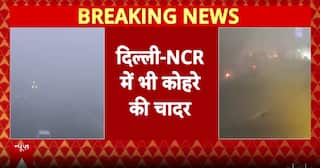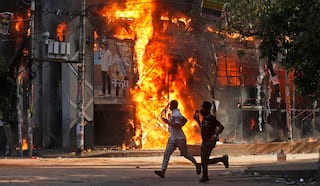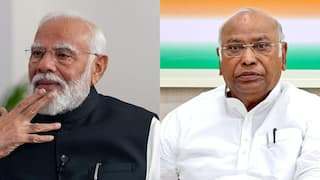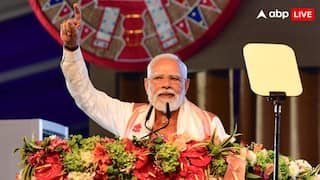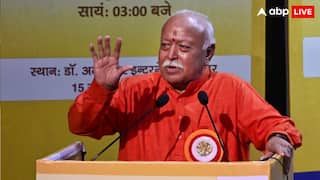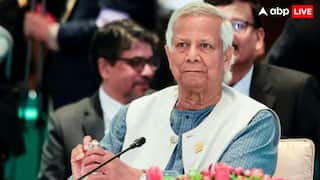Australia And India In The Time Of Covid: Racism, Colonialism & Geopolitics

There was a time when Australia, a poor country cousin to both Britain and the United States, was never on the minds of Indians—except when it came to the subject of cricket. Australians have long had a reputation for being ferociously competitive in all sports and I recall from my childhood in the 1970s Indian commentators lamenting that their own sportsmen, unlike the Aussies, lacked ‘the killer instinct’. Defeating Australia on their home ground remained for Indian test cricket an objective that was only achieved thirty years after the two countries played their first test series in 1947-48. If the first test on Australian soil was won in 1977, it took a little more than seventy years for India to win a test series in Australia. But India’s most spectacular win might have been just months ago in January, when, much to the astonishment of Indians and Australians alike, indeed the entire cricketing world, India cast a spell at the Gabba stadium in Brisbane, where Australia had been undefeated against any team in 32 years and won the test—and the series—with three wickets to spare.
That last defeat must have pinched Australia, more particularly when it utterly vanquished India in the first test match and left everyone thinking that India would be groveling in the dirt for the remainder of the series. But it cannot have pinched Australia enough to warrant the rather ugly turn of events between the two countries in recent days. It started with a headline in The Australian on April 26th, “Modi leads India out of lockdown … and into a viral apocalypse.” The Asia Correspondent, Philip Sherwell, was unsparing in his criticism of Modi, whom he took down with this acerbic observation: “Arrogance, hyper-nationalism, and bureaucratic incompetence have combined to create a crisis of epic proportions, critics say, as India’s crowd-loving PM basks while citizens literally suffocate.” Sherwell voiced criticism that for some days has been heard in India and around the world: Modi and his ministers not only willfully ignored warnings from health experts about the emergence of a second wave and new variants, but even openly encouraged mass religious gatherings such as the Kumbh Mela with full-page advertisements in newspapers promoting the Kumbh as a safe, clean, and Covid-free experience. Both Modi and his Home Minister, Amit Shah, held mass election rallies in West Bengal where thousands went mask-less. The piece goes on to offer a resounding critique of how India’s slow vaccine roll-out, the “hubris” of the Centre, the poison of nationalist politics, and the catastrophic failure of the health system have all contributed to turning the country into a Covid hell.
The Australian was scarcely alone in voicing such criticism of Modi. Similarly, harsh indictments of his gross mismanagement of the pandemic and the callousness of the state have appeared everywhere around the world. Indeed, Sherwell’s article first appeared in The Times before being reprinted in The Australian, but it is the piece’s publication in an Australian newspaper that appears to have provoked the Indian High Commission in Canberra into a ferocious rejoinder. Writing to the newspaper’s editor-in-chief, India’s Deputy High Commissioner deplored that the newspaper had reproduced “a completely baseless, malicious and slanderous article without bothering to check the facts”, suggesting that “the report has been written only with the sole objective of undermining the universally acclaimed approach taken by the Government of India to fight against the deadly global pandemic, at this decisive moment.” Just two days later, External Affairs Minister S Jaishankar, in a virtual meeting with Indian ambassadors and high commissioners posted around the world, instructed them to counter aggressively the “one-sided” narrative in the international media that has highlighted the incompetence of the present government and Modi’s arrogance.
The subject of how Indian diplomacy has changed over the years, largely in response to the perception that India has long been a somewhat “soft” state, is critically important but must be left aside for the present. The scathing criticism leveled against Modi in The Australian is not without justification and similarly the claim by the Indian High Commission that the response of the Indian state to the pandemic has been “universally acclaimed” seems at this juncture not merely churlish but downright disingenuous if not comical. India seems to be the last country that anyone wants to emulate now; nor did India’s total lockdown in March 2020, on four hours’ notice to the country, strike anyone as humane. However, Australia has stepped into the fray with, so to speak, its own rejoinder. On Monday, a new ban on travel from India to Australia went into effect, and its provisions can only be described as draconian. Citing the alarming increase in Covid cases in India, the spread of a new variant, and the apparent inability of the Indian government to contain Covid, the Australian government has forbidden anyone in India, including its own citizens, from traveling to Australia. Anyone found in breach of the law faces penalties of up to five years in prison and a fine of up to $60,000 Australian dollars or nearly Rs 35 lakhs. The country’s foreign minister, responding to criticism, pointed to the fact that 57 percent of those found positive in Australia and placed in quarantine have been arrivals from India. She noted, “It was placing a very, very significant burden on health and medical services in states and territories.”
The travel ban is doubtless unprecedented in that it is the first time that Australia has termed it a criminal offense for its own citizens and permanent residents from returning to their country. Though the Australian government will not say so, there is every reason to believe that the Australians stranded in India are overwhelming of Indian origin. Australian Prime Minister Scott Morrison has sought to offer a robust defence of his government, claiming that the allegations of racism are unfounded since a similar ban was imposed on people coming from China. But this is wholly incorrect: Australia did not make it a criminal offense for its own citizens and permanent residents to return to Australia from China. As other critics have pointed out, no similar restriction was imposed upon Australians in the US or Britain when those countries were reeling from the onslaught of the virus. Legal experts have raised questions about the constitutional validity of such a measure. The Australian Human Rights Commission has stated that the travel ban, accompanied by “criminal sanctions under the Biosecurity Act, raises serious human rights concerns”, and the United Nations has also said that it is gravely disturbed by such a measure. The Australian government and its spokespersons, meanwhile, remain adamant that the travel ban and the severe restraints it imposes are not in the least racist.
In Australia, it must be said, racism is ingrained into the “Australian way of life”, present in the very pores, arteries, and lifeways of Australian society, part of the very lore of a settler-colonial society born in genocide and until a century ago beholden to a “White Australia” policy. Aboriginals were hunted by white Australians, sometimes—as in the case of the Tasmanians—into extinction, but the treatment of immigrants and now refugees has not lagged far behind. Indians as an immigrant group as such are relatively late entrants into Australia but their numbers have grown more rapidly in the last five years than all other immigrants, barring those from Britain, jumping from 449,000 to 721,000. They now constitute 2.6 percent of the population. In 2009-10, Melbourne earned considerable notoriety as the site of a series of vicious attacks on Indian students. These nakedly racist attacks were widely reported in the Indian and international press; relations between the two countries plummeted; and when the government of then-Prime Minister Kevin Rudd finally responded, it did so because enrollment of Indian students, who have been a windfall for the Australian higher education sector, had declined dramatically.
What is indubitably clear is that Australia is far from mending its ways. Its notorious treatment of refugees has been the focus of some international criticism, but the insidious racism that is inherent in the structures and exchanges of everyday life is far too potent a force to be eradicated merely by multicultural education, mandates for diversity training, or the pieties of liberal thought. Australia will have to engage in a form of rigorous self-reflection that will shake the country to the core. While nothing, absolutely nothing, excuses Australia from its execrable conduct, it is also unequivocally clear that India continues to be vulnerable, uniquely so considering the size of its population and its vaunted ambition to be viewed as an emerging great power. If the present ban has not elicited the kind of knee-jerk response from the Indian government that one might have expected, it is not only because the fires of Covid are burning bright and the country is preoccupied in its desperate quest for oxygen. The brute fact is that a country that has shown itself incapable of safeguarding the lives of its own citizens, on the sacred land (bhoomi) that is called “Bharat Mata”, has little or no leverage with most countries when it comes to overseas citizens of Indian origin. A country that has little respect for its own citizens is not calculated to make an impression upon the world stage. As long as the government remains oblivious to this indubitable fact, India is likely to remain at the receiving end of third-class treatment.
(Vinay Lal is a writer, blogger, cultural critic, and Professor of History at UCLA)
[Disclaimer: The opinions, beliefs, and views expressed by the various authors and forum participants on this website are personal and do not reflect the opinions, beliefs, and views of ABP News Network Pvt Ltd.]










